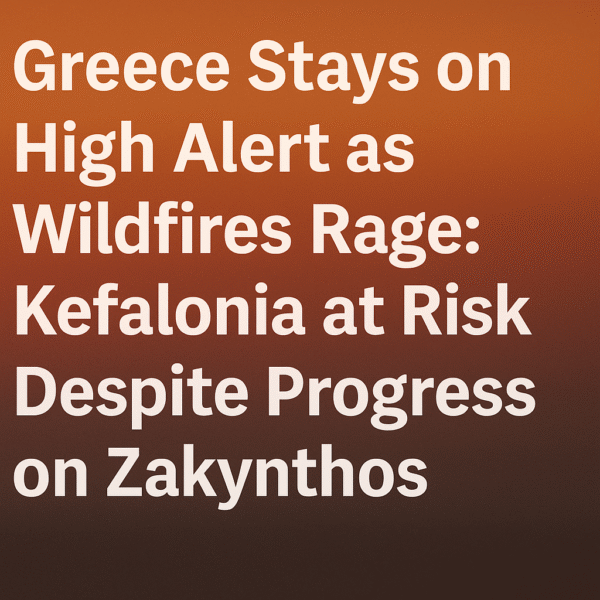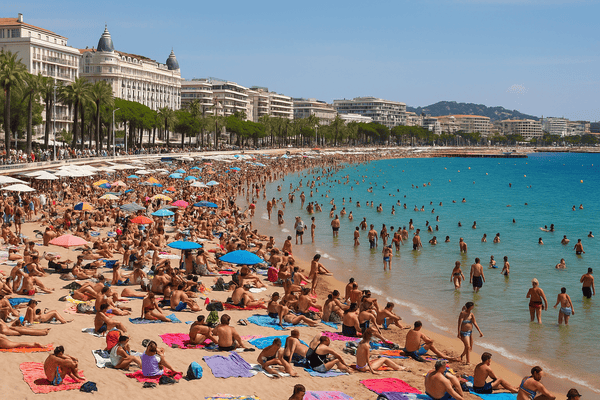The iconic French Riviera city of Cannes has joined a growing number of European destinations taking bold action to manage overtourism by introducing new cruise ship regulations. Best known for its glamorous film festival, luxury lifestyle, and historic coastline, Cannes will begin limiting large cruise ship arrivals starting January 1, 2026, in an effort to safeguard its environment, local community, and cultural identity.
In a move designed to promote sustainable tourism, Cannes’ city council has announced that only cruise ships carrying fewer than 1,000 passengers will be permitted to dock directly in the port. Additionally, a daily cap of 6,000 disembarking cruise passengers will be enforced. Larger vessels exceeding this limit must offload passengers via tender boats, a method deemed less disruptive to local infrastructure.
A New Chapter for Cruise Tourism in Cannes
This announcement marks a significant shift in the way Cannes manages its visitor influx, especially during the peak summer season. The regulations were finalized just ahead of the arrival of two mega cruise ships—each carrying more than 7,000 guests—which will be the last of their size to dock under the current rules.
Though the decision has drawn criticism from some cruise industry representatives, who argue the restrictions may affect local tourism revenue, city officials remain firm. They emphasize that preserving Cannes’ natural beauty and community wellbeing is more important than short-term visitor volume.
“Our objective is not to close the door to tourism,” said a Cannes municipal representative, “but to ensure that tourism here is sustainable and aligned with the scale of our city and its infrastructure.”
Following in the Footsteps of Other European Trailblazers
Cannes is not alone in its efforts. Across Europe, popular tourist cities such as Venice, Amsterdam, Barcelona, and Nice have adopted similar restrictions on cruise tourism to mitigate overcrowding, pollution, and social tensions.
- Venice banned large cruise ships from entering its historic lagoon in 2021, citing the need to preserve its UNESCO World Heritage status.
- Amsterdam introduced limitations to reduce air pollution and excessive foot traffic in the city center.
- Barcelona has enforced passenger caps at its port and restricted short-term holiday rentals to control the influx of tourists.
This collective movement highlights a broader shift toward sustainable tourism models—ones that prioritize quality of life for residents and environmental stewardship over mass tourism.
France’s Growing Response to Overtourism
In 2024, France welcomed over 100 million international visitors, surpassing its own population and breaking tourism records. While the economic benefits were undeniable, the sheer scale of tourism has placed pressure on cities such as Paris, Nice, and Cannes.
Recent incidents have brought this tension into sharp focus. In Paris, staff at the Louvre Museum went on strike in 2024 to protest overwhelming crowds, understaffing, and the toll on infrastructure. Meanwhile, residents in coastal cities have voiced concerns over increased pollution, noise, and the transformation of their neighborhoods into tourist-centric zones.
Cannes, with its relatively small size and fragile maritime environment, is particularly susceptible to the effects of mass tourism. From waste management challenges to rising real estate prices that displace locals, the city has reached a tipping point.
Local and Environmental Impacts Drive the Policy
Beyond economic considerations, environmental degradation has been a central motivator behind the new cruise limits. Larger cruise ships contribute significantly to air and sea pollution, including the emission of nitrogen oxides and particulate matter that affect both marine biodiversity and human health.
Local groups in Cannes have applauded the decision, calling it a step in the right direction toward sustainable development. Environmental organizations have long warned of the damaging effects of frequent cruise traffic on the Mediterranean Sea’s fragile ecosystems.
By reducing the number of daily passengers and limiting ship size, city officials aim to decrease emissions, protect local wildlife, and allow infrastructure to manage visitor numbers more effectively.
Tourism Industry Reactions and Adaptation
The cruise industry, while acknowledging the concerns of local governments, has expressed reservations about the sudden nature of the restrictions. Operators argue that logistics for tender transfers can be cumbersome and may reduce guest satisfaction.
However, many cruise lines are already adapting. Some are exploring smaller, eco-friendly vessels, while others are adjusting itineraries to include alternate ports or longer overnight stays in cities that offer the necessary infrastructure.
As demand grows for meaningful travel experiences, destinations like Cannes are likely to benefit from attracting higher-value tourists who prioritize local culture, sustainability, and authentic engagement.
A Blueprint for Future Travel
Cannes’ new cruise ship policy reflects a changing tide in global tourism management. Instead of celebrating sheer numbers, more destinations are aiming for balance, equity, and long-term resilience. By setting caps on visitation, Cannes is signaling that protecting its coastline, cultural assets, and citizens must take precedence.
The city also aims to strengthen its appeal in other areas of tourism, such as film, yachting, gastronomy, and cultural festivals, ensuring it remains a world-class destination that thrives without being overwhelmed.
Conclusion: Cannes Charts a Sustainable Course Forward
As cruise ship restrictions take effect in 2026, Cannes joins the vanguard of European cities actively addressing the complexities of overtourism. Its bold move offers a model for other destinations struggling to strike a balance between economic growth and environmental preservation.
By putting community welfare and ecological integrity at the forefront, Cannes ensures it will continue to welcome travelers—not in overwhelming numbers, but in ways that enrich both the visitor and the destination. This transition marks not the end of tourism in Cannes, but a smarter, more sustainable evolution of it.
For more travel news like this, keep reading Global Travel Wire














